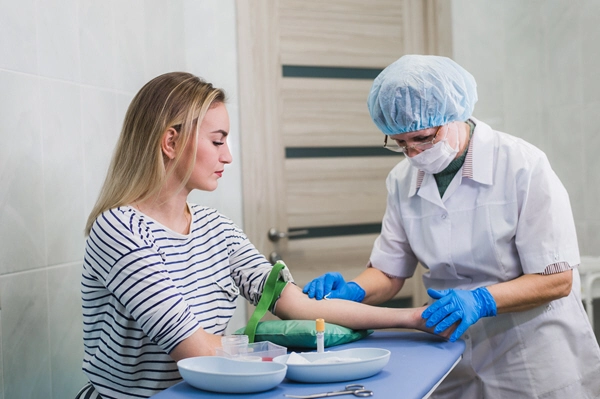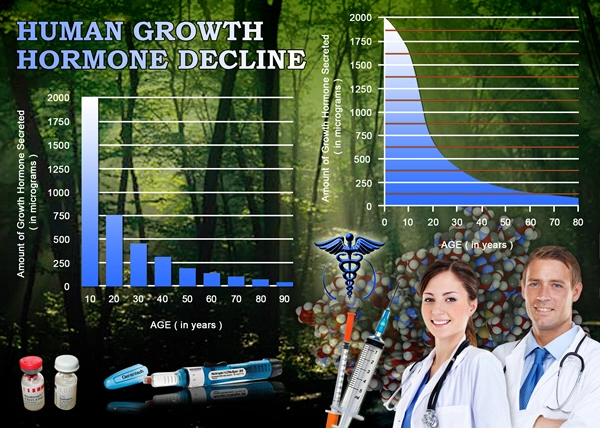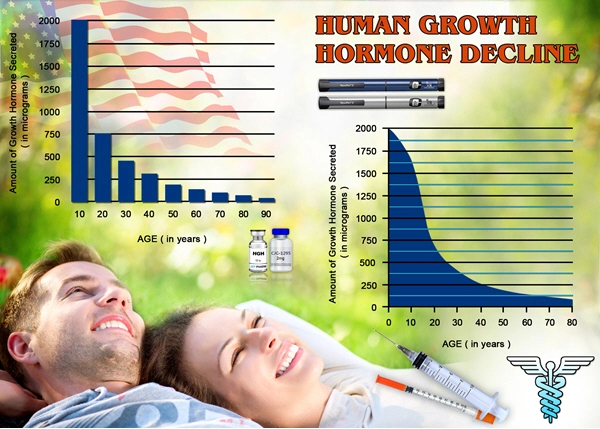Introduction to Primary Hypogonadism
Primary hypogonadism, a condition characterized by the inadequate production of testosterone due to testicular dysfunction, affects a significant number of American males. Despite its prevalence, many men face psychological barriers that prevent them from seeking or adhering to treatment. Understanding these barriers is crucial for improving patient outcomes and quality of life.
The Stigma of Hormonal Imbalance
One of the primary psychological barriers to treatment is the stigma associated with hormonal imbalances. Many American men view testosterone therapy as an admission of weakness or a sign of aging, which can be particularly challenging in a culture that values strength and youth. This stigma can lead to denial of symptoms and reluctance to seek medical help, exacerbating the condition and its effects on overall health.
Fear of Dependency and Side Effects
Another significant barrier is the fear of becoming dependent on testosterone replacement therapy (TRT). Men may worry that once they start TRT, they will need to continue it indefinitely, which can be daunting. Additionally, concerns about potential side effects, such as increased risk of cardiovascular issues or mood swings, can deter men from pursuing treatment. These fears are often fueled by misinformation or a lack of understanding about the safety and efficacy of modern TRT protocols.
Impact on Masculinity and Self-Image
Primary hypogonadism can profoundly affect a man's sense of masculinity and self-image. Symptoms such as decreased libido, erectile dysfunction, and reduced muscle mass can lead to feelings of inadequacy and embarrassment. These emotional responses can create a vicious cycle, where the psychological impact of the condition further discourages men from seeking treatment, perpetuating their distress and physical symptoms.
Cultural and Social Influences
Cultural and social influences play a significant role in how American men perceive and respond to primary hypogonadism. The pressure to conform to traditional masculine ideals can make it difficult for men to openly discuss their health concerns, especially those related to sexual function and fertility. This cultural silence can isolate men and prevent them from accessing the support and resources they need to manage their condition effectively.
Strategies for Overcoming Psychological Barriers
To address these psychological barriers, healthcare providers must adopt a holistic approach to treatment. This includes:
- **Education and Awareness:** Providing accurate information about primary hypogonadism and TRT can help dispel myths and alleviate fears. Educational programs should emphasize the benefits of treatment and the safety of modern therapies.
- **Psychological Support:** Offering counseling or support groups can help men cope with the emotional aspects of their condition. Addressing feelings of shame or inadequacy can improve treatment adherence and overall well-being.
- **Personalized Treatment Plans:** Tailoring treatment to individual needs and preferences can increase patient satisfaction and engagement. Discussing potential side effects and long-term outcomes openly can build trust and reduce anxiety about dependency.
- **Community and Peer Support:** Encouraging men to connect with others who have similar experiences can reduce feelings of isolation and provide a platform for sharing coping strategies and success stories.
Conclusion: A Call to Action
Primary hypogonadism presents not only a physical challenge but also a significant psychological one for American men. By understanding and addressing the psychological barriers to treatment, healthcare providers can help men overcome their fears and misconceptions, leading to better health outcomes. It is essential for the medical community to foster an environment where men feel supported and empowered to seek the care they need, ultimately improving their quality of life and well-being.

- Primary Hypogonadism: Overcoming Stigma and Enhancing Men's Health in America [Last Updated On: February 22nd, 2025] [Originally Added On: February 22nd, 2025]
- Exercise Regimen Boosts Testosterone in American Males with Primary Hypogonadism [Last Updated On: March 17th, 2025] [Originally Added On: March 17th, 2025]
- Primary Hypogonadism in Aging American Men: Symptoms, Impacts, and Management Strategies [Last Updated On: March 17th, 2025] [Originally Added On: March 17th, 2025]
- Innovative Therapies and Lifestyle Interventions for Primary Hypogonadism in American Males [Last Updated On: March 19th, 2025] [Originally Added On: March 19th, 2025]
- Primary Hypogonadism: Symptoms, Diagnosis, and Treatment Options for American Men [Last Updated On: March 19th, 2025] [Originally Added On: March 19th, 2025]
- Primary Hypogonadism: Understanding, Managing, and Supporting Affected American Men [Last Updated On: March 19th, 2025] [Originally Added On: March 19th, 2025]
- Primary Hypogonadism: Impact on Work and Strategies for American Men's Productivity [Last Updated On: March 20th, 2025] [Originally Added On: March 20th, 2025]
- Emotional Journey of American Males with Primary Hypogonadism: From Diagnosis to Acceptance [Last Updated On: March 20th, 2025] [Originally Added On: March 20th, 2025]
- Managing Primary Hypogonadism: Diet, Nutrition, and Lifestyle Strategies for American Males [Last Updated On: March 20th, 2025] [Originally Added On: March 20th, 2025]
- Primary Hypogonadism and Obesity Link in American Males: Causes, Impacts, and Management [Last Updated On: March 21st, 2025] [Originally Added On: March 21st, 2025]
- Primary Hypogonadism in American Men: Support Networks and Psychological Impact [Last Updated On: March 21st, 2025] [Originally Added On: March 21st, 2025]
- Primary Hypogonadism and Diabetes: Dual Health Challenge for American Men [Last Updated On: March 22nd, 2025] [Originally Added On: March 22nd, 2025]
- Managing Primary Hypogonadism: Navigating Diagnosis, Treatment, and Support in the US [Last Updated On: March 22nd, 2025] [Originally Added On: March 22nd, 2025]
- Diagnosing Primary Hypogonadism in American Males: Challenges and Advances [Last Updated On: March 23rd, 2025] [Originally Added On: March 23rd, 2025]
- Managing Primary Hypogonadism: Symptoms, Diagnosis, and Treatment Options for American Men [Last Updated On: March 23rd, 2025] [Originally Added On: March 23rd, 2025]
- Managing Primary Hypogonadism: Education and Treatment for American Males [Last Updated On: March 23rd, 2025] [Originally Added On: March 23rd, 2025]
- Primary Hypogonadism: Understanding Emotional Impact and Holistic Management Strategies [Last Updated On: March 23rd, 2025] [Originally Added On: March 23rd, 2025]
- Primary Hypogonadism's Impact on Muscle Mass in American Males: Causes and Therapies [Last Updated On: March 24th, 2025] [Originally Added On: March 24th, 2025]
- American Males' Resilience in Managing Primary Hypogonadism: Stories and Strategies [Last Updated On: March 24th, 2025] [Originally Added On: March 24th, 2025]
- Primary Hypogonadism: Mental Health's Crucial Role in Holistic Care for American Men [Last Updated On: March 24th, 2025] [Originally Added On: March 24th, 2025]
- Innovative Therapies and Personalized Approaches Transforming Primary Hypogonadism Treatment in American Males [Last Updated On: March 24th, 2025] [Originally Added On: March 24th, 2025]
- Community Support Enhances Management of Primary Hypogonadism in American Men [Last Updated On: March 25th, 2025] [Originally Added On: March 25th, 2025]
- Primary Hypogonadism in American Men: TRT's Role and Holistic Management [Last Updated On: March 25th, 2025] [Originally Added On: March 25th, 2025]
- Primary Hypogonadism in American Men: Symptoms, Causes, and Holistic Management [Last Updated On: March 25th, 2025] [Originally Added On: March 25th, 2025]
- Genetic Testing for Primary Hypogonadism: Diagnosis and Management in American Males [Last Updated On: March 25th, 2025] [Originally Added On: March 25th, 2025]
- Primary Hypogonadism's Impact on Sleep: Diagnosis, Treatment, and Lifestyle Management [Last Updated On: March 25th, 2025] [Originally Added On: March 25th, 2025]
- Managing Primary Hypogonadism: Symptoms, Diagnosis, and Healthcare Navigation in the US [Last Updated On: March 25th, 2025] [Originally Added On: March 25th, 2025]
- Primary Hypogonadism: Impact, Advocacy, and Research Needs for American Men [Last Updated On: March 25th, 2025] [Originally Added On: March 25th, 2025]
- Primary Hypogonadism: Impact on Body Image and Management Strategies for American Men [Last Updated On: March 25th, 2025] [Originally Added On: March 25th, 2025]
- Primary Hypogonadism: Family Support's Crucial Role in American Males' Well-being [Last Updated On: March 25th, 2025] [Originally Added On: March 25th, 2025]
- Primary Hypogonadism: Causes, Symptoms, and Early Intervention for American Men [Last Updated On: March 25th, 2025] [Originally Added On: March 25th, 2025]
- Primary Hypogonadism Management: Importance of Regular Check-ups for American Males [Last Updated On: March 25th, 2025] [Originally Added On: March 25th, 2025]
- Financial Burdens of Primary Hypogonadism: Costs, Insurance, and Coping Strategies for American Men [Last Updated On: March 25th, 2025] [Originally Added On: March 25th, 2025]
- Primary Hypogonadism in American Males: Diagnosis, Treatment, and Management Strategies [Last Updated On: March 25th, 2025] [Originally Added On: March 25th, 2025]
- Primary Hypogonadism: Causes, Symptoms, and Treatment in American Men [Last Updated On: March 26th, 2025] [Originally Added On: March 26th, 2025]
- Primary Hypogonadism: Diagnosis, Specialists, and Management for American Men [Last Updated On: March 26th, 2025] [Originally Added On: March 26th, 2025]
- Primary Hypogonadism: Impacts on American Men's Social Life and Health [Last Updated On: March 26th, 2025] [Originally Added On: March 26th, 2025]
- Primary Hypogonadism in American Men: Diagnosis, Impact, and Management Strategies [Last Updated On: March 27th, 2025] [Originally Added On: March 27th, 2025]
- Nutritionists' Vital Role in Managing Primary Hypogonadism in American Males [Last Updated On: March 27th, 2025] [Originally Added On: March 27th, 2025]
- Exercise Physiologists' Role in Managing Primary Hypogonadism in American Males [Last Updated On: March 27th, 2025] [Originally Added On: March 27th, 2025]
- Understanding Primary Hypogonadism: Symptoms, Diagnosis, and Treatment Options [Last Updated On: March 27th, 2025] [Originally Added On: March 27th, 2025]
- Primary Hypogonadism: Impacts, Diagnosis, and Management in American Males [Last Updated On: March 27th, 2025] [Originally Added On: March 27th, 2025]
- Primary Hypogonadism: Impacts and Strategies for Career Success in American Males [Last Updated On: March 27th, 2025] [Originally Added On: March 27th, 2025]
- Primary Hypogonadism's Impact on Physical Activity in American Males: Challenges and Strategies [Last Updated On: March 27th, 2025] [Originally Added On: March 27th, 2025]
- Primary Hypogonadism in American Men: The Vital Role of Peer Support [Last Updated On: March 27th, 2025] [Originally Added On: March 27th, 2025]
- Primary Hypogonadism: Variability in Symptoms and Impact on American Men's Health [Last Updated On: March 28th, 2025] [Originally Added On: March 28th, 2025]
- Primary Hypogonadism in American Men: Diagnosis, Treatment, and Management Strategies [Last Updated On: March 28th, 2025] [Originally Added On: March 28th, 2025]
- Primary Hypogonadism's Impact on Self-Esteem in American Males: A Holistic Approach [Last Updated On: March 29th, 2025] [Originally Added On: March 29th, 2025]
- Primary Hypogonadism: Understanding Treatments and Managing Side Effects in American Males [Last Updated On: March 29th, 2025] [Originally Added On: March 29th, 2025]
- Primary Hypogonadism: Addressing Emotional Challenges in American Men [Last Updated On: March 30th, 2025] [Originally Added On: March 30th, 2025]
- Primary Hypogonadism: Impact, Monitoring, and Management Strategies for American Men [Last Updated On: March 30th, 2025] [Originally Added On: March 30th, 2025]
- Primary Hypogonadism: Impacts and Options for Family Planning in American Males [Last Updated On: April 1st, 2025] [Originally Added On: April 1st, 2025]
- Primary Hypogonadism: Managing Stress and Anxiety in American Men [Last Updated On: April 2nd, 2025] [Originally Added On: April 2nd, 2025]
- Primary Hypogonadism in American Men: Diagnosis, Treatment, and Lifestyle Management [Last Updated On: April 4th, 2025] [Originally Added On: April 4th, 2025]
- Endocrinologists' Vital Role in Managing Primary Hypogonadism in American Males [Last Updated On: April 5th, 2025] [Originally Added On: April 5th, 2025]
- Managing Primary Hypogonadism: Financial Strategies and Support Options for American Men [Last Updated On: April 6th, 2025] [Originally Added On: April 6th, 2025]
- Revolutionizing Primary Hypogonadism Management with Wearable Tech and Telemedicine in American Men [Last Updated On: April 7th, 2025] [Originally Added On: April 7th, 2025]
- Managing Primary Hypogonadism: Diagnosis, Treatment, and Lifestyle Strategies for American Men [Last Updated On: April 8th, 2025] [Originally Added On: April 8th, 2025]
- Primary Hypogonadism: Impacts on Social Life and Relationships in American Males [Last Updated On: April 8th, 2025] [Originally Added On: April 8th, 2025]
- Primary Hypogonadism: Impacts on Health, Psychology, and Daily Life in American Males [Last Updated On: April 9th, 2025] [Originally Added On: April 9th, 2025]
- Primary Hypogonadism: Challenges and Strategies for Treatment Adherence in American Males [Last Updated On: April 9th, 2025] [Originally Added On: April 9th, 2025]
- Primary Hypogonadism: Educating American Males on Symptoms, Treatment, and Lifestyle Management [Last Updated On: April 10th, 2025] [Originally Added On: April 10th, 2025]
- Support Groups: Vital for Managing Primary Hypogonadism in American Males [Last Updated On: April 10th, 2025] [Originally Added On: April 10th, 2025]
- Primary Hypogonadism: A Multidisciplinary Approach for American Men's Health [Last Updated On: April 10th, 2025] [Originally Added On: April 10th, 2025]
- Managing Primary Hypogonadism: Diagnosis, Treatment, and Maintaining a Positive Outlook for American Men [Last Updated On: April 11th, 2025] [Originally Added On: April 11th, 2025]
- Mental Health Apps: A New Hope for American Males with Primary Hypogonadism [Last Updated On: April 12th, 2025] [Originally Added On: April 12th, 2025]
- Primary Hypogonadism: Understanding, Treatments, and Future Hope for American Men [Last Updated On: April 14th, 2025] [Originally Added On: April 14th, 2025]
- Managing Primary Hypogonadism: Importance of Regular Follow-ups for American Men [Last Updated On: April 15th, 2025] [Originally Added On: April 15th, 2025]
- Primary Hypogonadism Management: Multidisciplinary Team Approach for American Men [Last Updated On: April 15th, 2025] [Originally Added On: April 15th, 2025]
- Primary Hypogonadism: Navigating Workplace Challenges and Advocacy for American Men [Last Updated On: April 16th, 2025] [Originally Added On: April 16th, 2025]
- Physical Therapy's Role in Managing Primary Hypogonadism in American Males [Last Updated On: April 18th, 2025] [Originally Added On: April 18th, 2025]
- Dietitians' Role in Managing Primary Hypogonadism Through Tailored Nutrition Plans [Last Updated On: April 18th, 2025] [Originally Added On: April 18th, 2025]
- Primary Hypogonadism: Navigating Travel Challenges for American Males [Last Updated On: April 18th, 2025] [Originally Added On: April 18th, 2025]
- Primary Hypogonadism's Impact on Cognitive Function and Academic Success in American Males [Last Updated On: April 18th, 2025] [Originally Added On: April 18th, 2025]
- Preparing for Primary Hypogonadism Diagnosis: A Guide for American Men [Last Updated On: April 19th, 2025] [Originally Added On: April 19th, 2025]
- Primary Hypogonadism's Impact on American Men's Hobbies and Social Life [Last Updated On: April 19th, 2025] [Originally Added On: April 19th, 2025]
- Primary Hypogonadism in American Men: Diagnosis, Treatment, and Lifestyle Impact [Last Updated On: April 19th, 2025] [Originally Added On: April 19th, 2025]
- Five-Year Study Confirms Efficacy and Safety of HRT for Primary Hypogonadism in American Men [Last Updated On: April 22nd, 2025] [Originally Added On: April 22nd, 2025]
- Managing Primary Hypogonadism: Exercise Benefits for American Men's Health [Last Updated On: April 22nd, 2025] [Originally Added On: April 22nd, 2025]
- Primary Hypogonadism: Causes, Symptoms, Diagnosis, and Treatment for American Males [Last Updated On: April 22nd, 2025] [Originally Added On: April 22nd, 2025]



List of USA state clinics - click a flag below for blood testing clinics.
Word Count: 572



















































